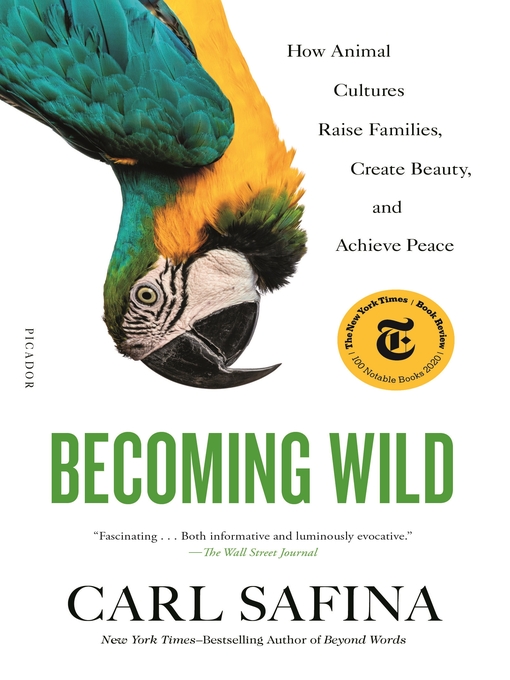Discover the rich cultures of non-human beings in Earth's remaining wild places, as revealed by bestselling author Carl Safina.
In this superbly articulate cri de coeur, Carl Safina, New York Times bestselling author, brings readers close to three non-human cultures—what they do, why they do it, and how life is for them. Becoming Wild: How Animal Cultures Raise Families, Create Beauty, and Achieve Peace is a revelatory account of how animals function beyond our usual view, from sperm whales to scarlet macaws to chimpanzees.
Alongside genes, culture is a second form of inheritance, passed through generations as pools of learned knowledge. As situations change, social learning—culture—allows behaviors to adjust much faster than genes can adapt. Safina shows that for non-humans and humans alike, culture comprises the answers to the question, "How do we live here?" It unites individuals within a group identity, though cultural groups often seek to avoid, or even be hostile toward, other factions.
By illuminating why these cultural tensions remain maddeningly intractable despite the arbitrariness of many of our differences, Safina takes readers behind the curtain of life on Earth, to witness from a new vantage point the most world-saving of perceptions: how we are all connected. A New York Times Notable Book of 2020, Becoming Wild offers a radically different way of looking at the natural world.
- Available now
- New eBook additions
- New kids additions
- New teen additions
- Most popular
- Try something different
- See all ebooks collections
- Available now
- New audiobook additions
- New kids additions
- New teen additions
- Read by a Celebrity
- Most popular
- Try something different
- Sci-Fi Audiobooks
- See all audiobooks collections

